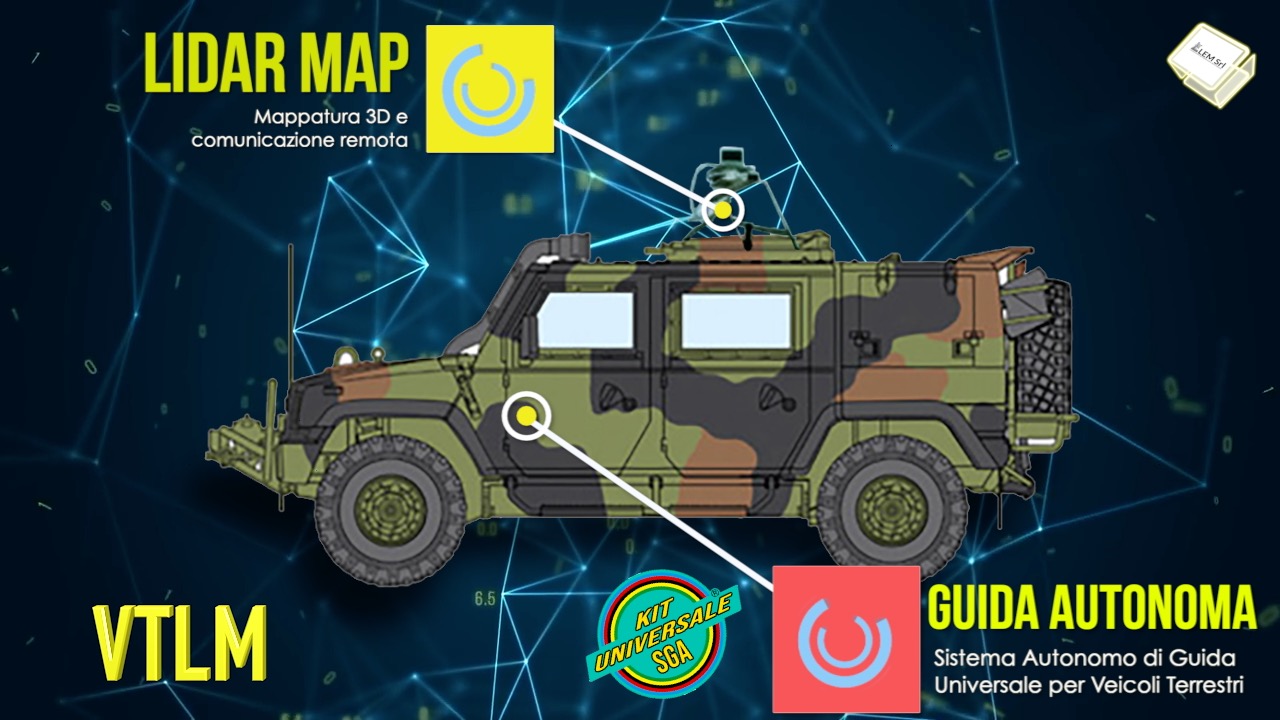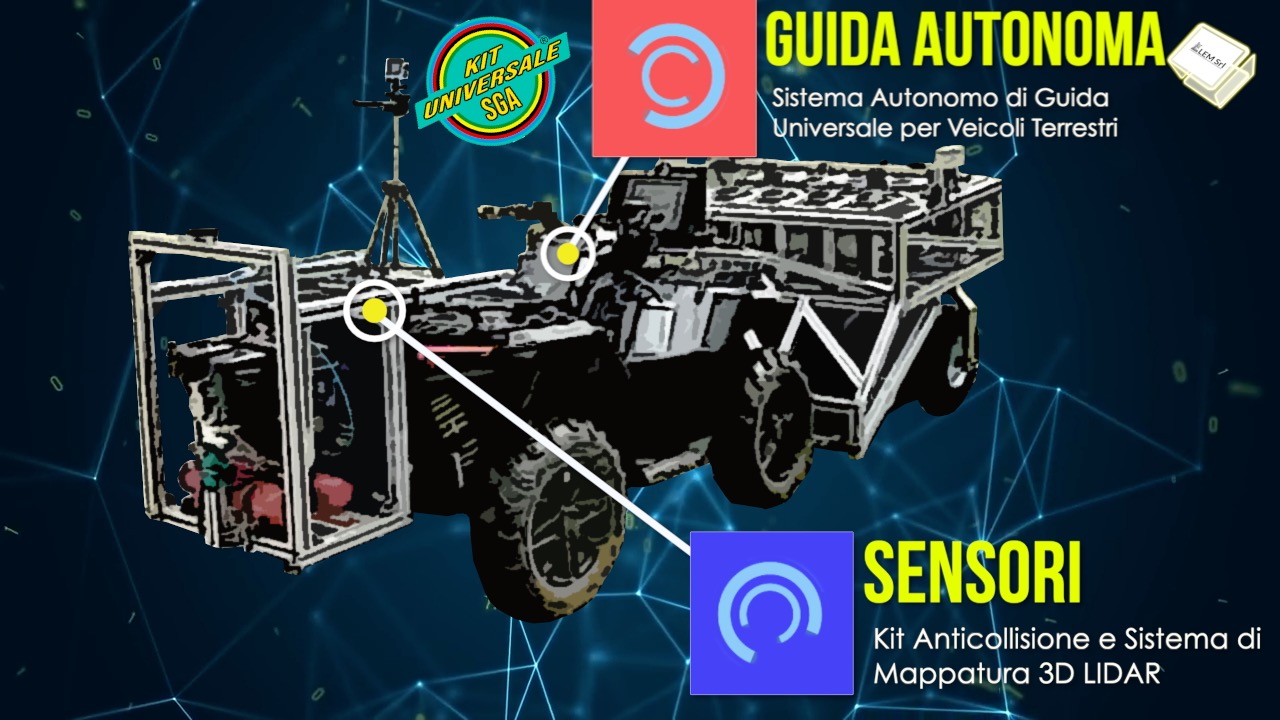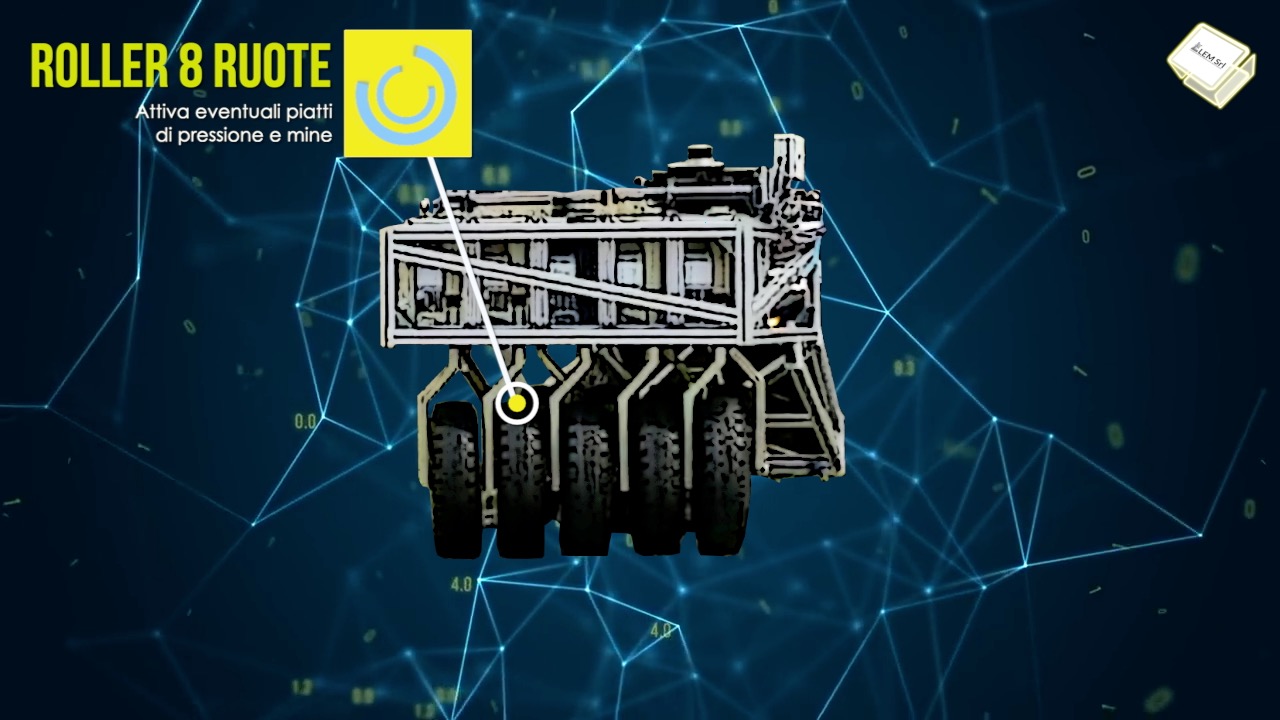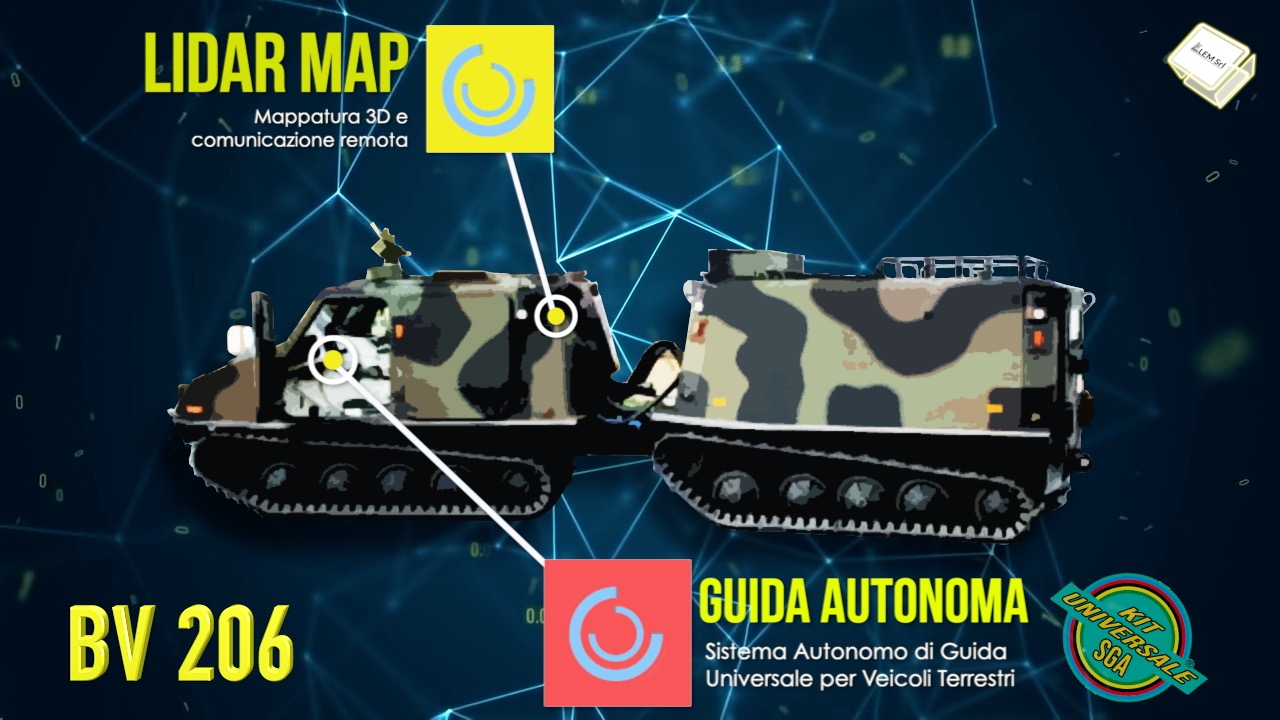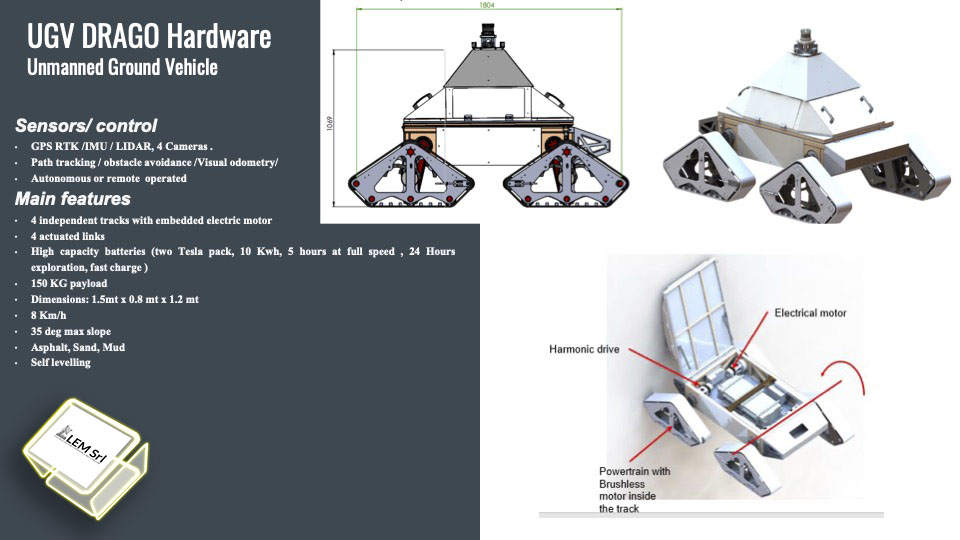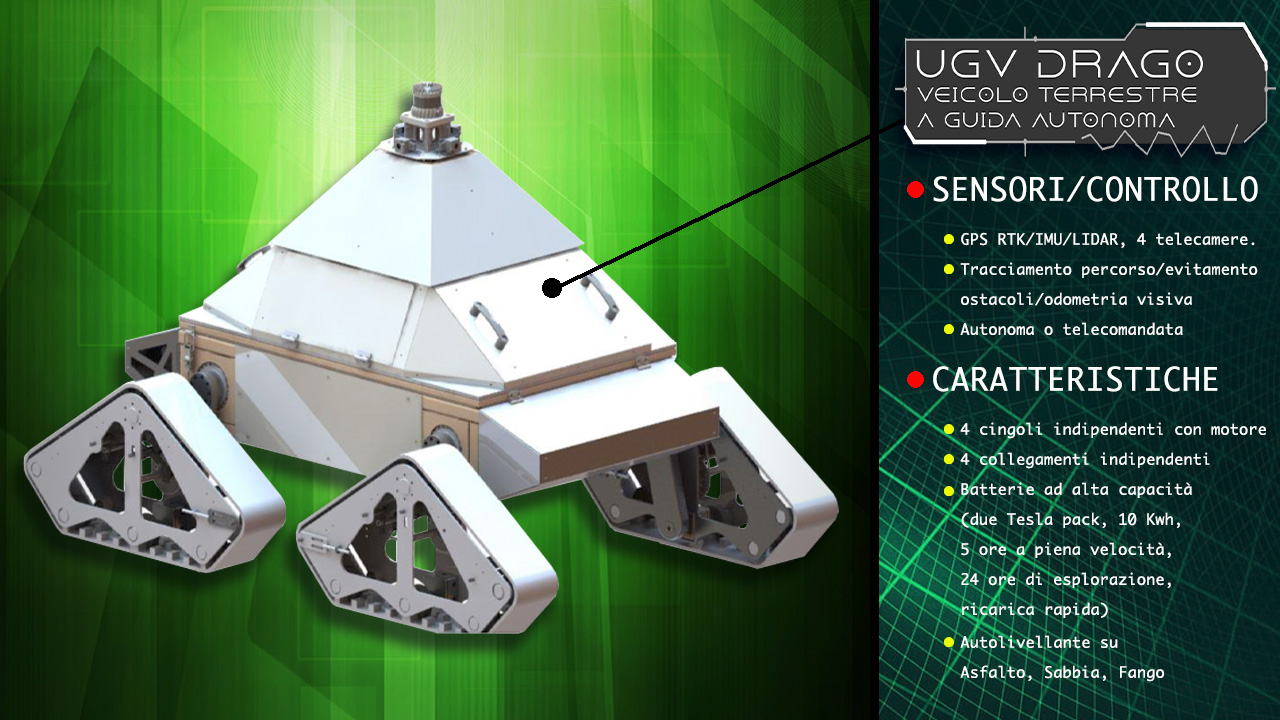GENERAL INFORMATION
 SAGUVET - Autonomous Universal Driving System for Land Vehicles
SAGUVET - Autonomous Universal Driving System for Land Vehicles
Description
The drive-by-wire kit includes an integrated vision system with cameras and LIDAR sensors, IMU and odometry during installation, a computer that transforms sensor data and commands from the ground control station via long-range radio link, 4G or WiFi into inputs for the interface between the drive kit and the vehicle's original controls. Currently, the system has been tested on the following vehicles and ground drones:
- BV 206
- VTLM
Application
Autonomous vehicles with optical sensors (LIDAR camera) for localisation.
Sensors
GNSS, Radar, LIDAR, Cameras, IMU, Odometry
Communication
Long Range Radiolink, 4G, WIFI
 UVRC - Unmanned Vehicles for Route Clearance
UVRC - Unmanned Vehicles for Route Clearance
Description
System designed to search for and eliminate mines, explosive devices and improvised explosive devices (IEDs) to enable military vehicles carrying personnel to pass through safely.
The same team can be used in operations to clear areas that are off-limits to civilians due to the possible presence of mines.
Intended use
Autonomous vehicle with sensors for 3D LIDAR mapping.
Features
Trailed module with 9 steering wheels, vehicle connection arm, sensor compartment for 3D LIDAR mapping.
 UGV – DRAGO Unmanned Ground Vehicles
UGV – DRAGO Unmanned Ground Vehicles
Description
Autonomous robotic system with LIDAR 3D mapping sensors that can track routes autonomously, even in rough terrain or with obstacles in the way, thanks to its self-levelling system.
Sensors/Control
GPS RTK/IMU/LIDAR, 4 cameras, route tracking/obstacle avoidance/visual odometry system, dual autonomous or remote-controlled guidance system.
Features
4 independent tracks with motor, 4 independent connections, high-capacity batteries (two Tesla Pack 10 Kwh, 5 hours at full speed, 24 hours of exploration, fast charging), self-levelling on asphalt, sand and mud.
